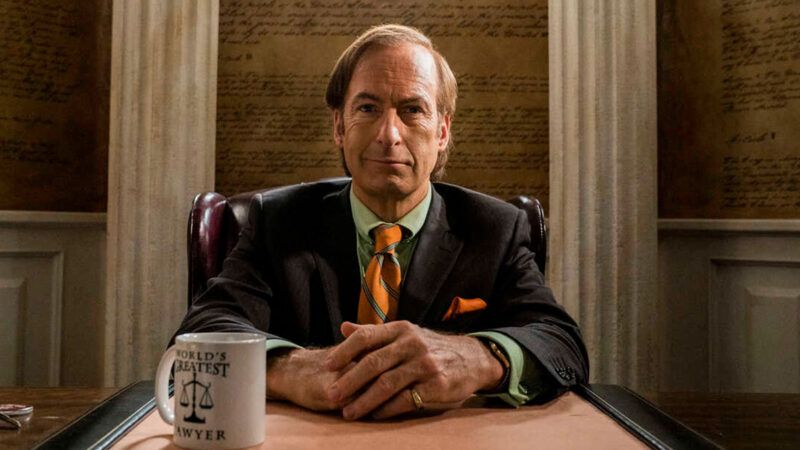Review: Better Call Saul Could Only Happen Under Drug Prohibition
The black market for drugs empowers bad actors while imposing serious burdens on innocents.

Better Call Saul was, on one level, a show about the law—its uses and its abuses, its complexity and its morality, and the ways a clever lawyer can bend it to suit his or her purposes, to both good and rotten ends.
The Breaking Bad spinoff, which aired its final episode in August, followed small-time con artist Jimmy McGill as he tried and failed to become an honest corporate lawyer and eventually transformed himself into the sleazy criminal legal defender Saul Goodman. Despite being surrounded by more honorable models—his corporate lawyer brother and a romantic partner whose true passion is helping the downtrodden as a public defender—Goodman becomes a self-dealing legal schemer, and, eventually, a bagman for a murderous drug cartel.
The drug war is what enables McGill to enact his most elaborate and profitable schemes. So on another level, Better Call Saul was also a show about the machinations of the drug war. It didn't feature stirring monologues about the cost and futility of drug prohibition. But its narrative demonstrated, over and over, that the black market for drugs enriches and empowers bad actors while imposing serious burdens on the legal system itself as well as on innocents with few resources or social power. Drug prohibition is shown, correctly, as a complex system created by the law, and thus subject to exploitation by clever legal operators.
